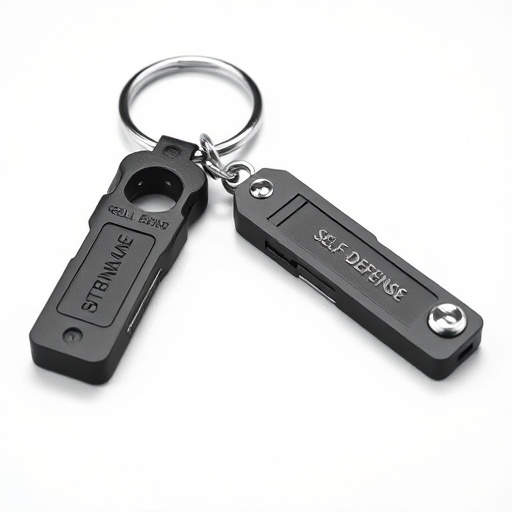The legal status of concealed keychain protection devices for women varies widely across US states, with each state having unique rules and restrictions. Women considering carrying these tools must understand their state's definition of a legal 'keychain weapon' and associated regulations to ensure compliance. These compact self-defense devices serve as deterrents in public spaces, but users must be aware of local laws regarding permit requirements and restricted areas. Prioritizing personal safety, women can empower themselves by researching device functionality and staying informed about state concealed carry laws.
“In today’s world, personal safety is a top priority, especially for women. This article explores the growing trend of defensive keychain legal carry guidelines in various states. We delve into the laws surrounding concealed keychain protection devices, focusing on accessibility for women and their unique needs. From understanding state regulations to practical safety tips, this guide empowers individuals to make informed decisions about personal defense. Discover the key aspects that ensure legal carrying and optimal protection.”
- Understanding State Laws on Concealed Keychain Devices
- Who Can Carry and Where: Women and Defensive Keychains
- Legal Considerations and Safety Tips for Optimal Protection
Understanding State Laws on Concealed Keychain Devices
In many states across the US, the legal landscape surrounding concealed keychain protection devices is evolving to better accommodate modern safety needs, especially for women who carry them as a personal security measure. It’s essential to understand your state’s specific regulations regarding these compact self-defense tools, often referred to as concealed keychain guns or knifes. Each state has its own set of rules and restrictions, governing where and how these devices can be carried, making it crucial for users to familiarize themselves with local laws before assuming legality.
For example, some states explicitly permit the open carry of certain types of self-defense keys, while others only allow for concealed carry with a valid concealed weapons license. Women considering carrying a concealed keychain device should look into their state’s definition of what constitutes a legal ‘keychain weapon’ and the associated requirements for ownership and carriage, ensuring they stay within legal boundaries to avoid any potential issues.
Who Can Carry and Where: Women and Defensive Keychains
Women, like all individuals, have the right to protect themselves and their belongings. In many states, this right extends to carrying concealed keychain protection devices for personal safety. These compact and easily concealable tools can be a powerful deterrent against potential threats, offering women an extra layer of security while running errands or enjoying public spaces.
When it comes to legal carry guidelines, the regulations vary by state, but generally, women can legally carry defensive keychains if they meet the requirements for concealed carry permit holders. It’s essential to understand the specific laws in your state regarding who can carry and where. Some states may have restrictions on the type of weapon allowed or locations like schools, bars, or government buildings where open or concealed carry is prohibited. Therefore, women interested in carrying a defensive keychain should familiarize themselves with their state’s concealed carry laws to ensure they remain within legal boundaries.
Legal Considerations and Safety Tips for Optimal Protection
When it comes to personal safety, especially for women who may be more vulnerable in certain situations, concealed keychain protection devices have emerged as a popular and discreet option. It’s important to understand the legal considerations surrounding their use to ensure compliance with state laws. In many states, small, non-lethal self-defense tools like keychains equipped with pepper spray or stun functions are legal for personal carry, but specific restrictions vary widely. Women considering this option should research their state’s regulations to confirm what types of devices are allowed and where they can be carried.
Safety is paramount when selecting and using a keychain protection device. Opting for products with proven safety features and reliable activation mechanisms ensures optimal protection in an emergency. Users should familiarize themselves with the device’s functionality, including how to activate it quickly and effectively. Regular maintenance and testing of the device are also crucial to ensure it remains operational when needed most. By staying informed about legalities and prioritizing safety measures, women can make informed decisions regarding their personal defense and peace of mind.
In conclusion, defensive keychains offer women a discreet and readily accessible means of personal protection. By understanding state laws, knowing their rights, and following safety guidelines, users can leverage these innovative devices for optimal self-defense. Remember that staying informed and prepared is key to ensuring your safety in any situation.
